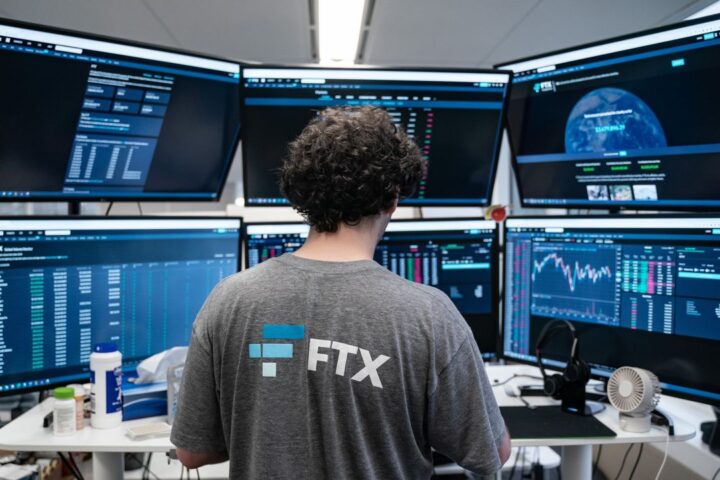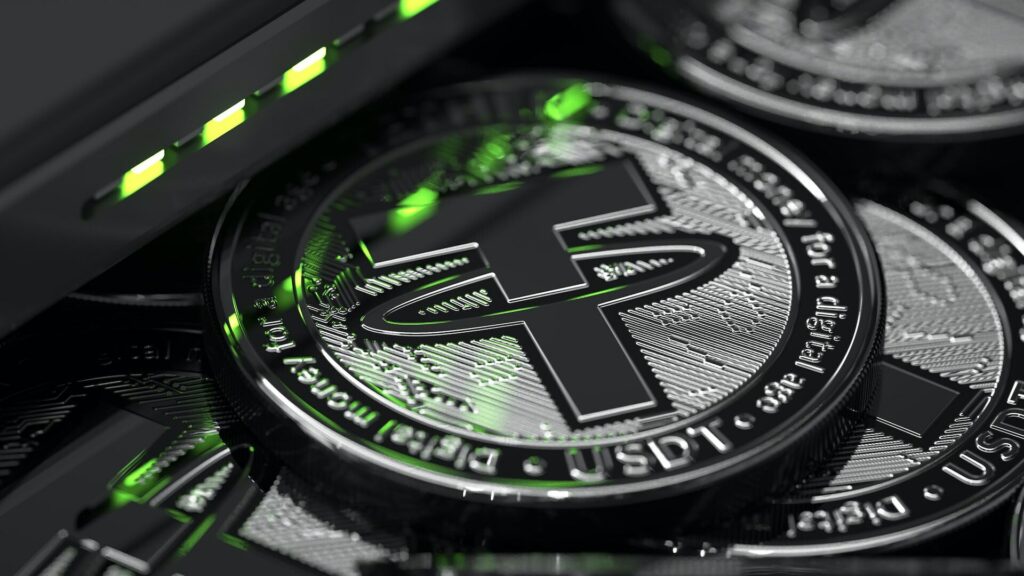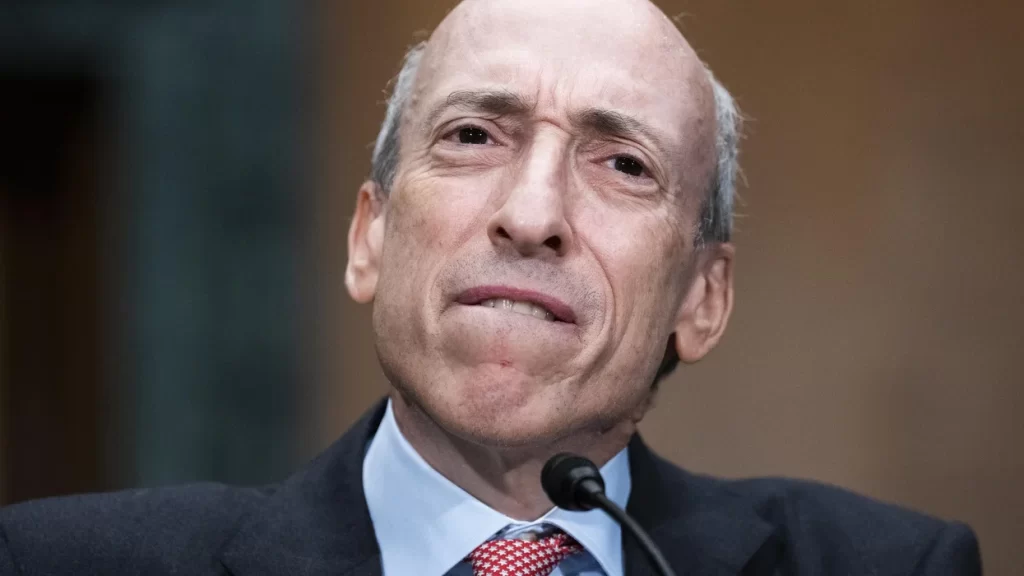Tether, the stablecoin issuer, has responded to the controversy surrounding the deactivation of accounts belonging to major cryptocurrency firms, including MoonPay. The New York Attorney General (NYAG) released documents stating that Tether deactivated approximately 29 accounts of prominent players in the crypto industry in 2021.
While the specific reasons for the terminations were not disclosed, Tether has stated that it will not comment on individual relationships. The company emphasized that all individuals had undergone thorough compliance checks during onboarding and continuous monitoring as part of Tether’s compliance policies.
Among the deactivated accounts were those of MoonPay, BlockFi, CMS Holdings, and Galois Capital. The NYAG investigation, which began earlier in 2021, revealed that certain documents related to the probe extended until around June of the same year. User codes within these documents have been redacted.
The investigation into Tether and its sister company Bitfinex was initiated by the NYAG, alleging misappropriation of $850 million in funds. During the investigation, iFinex, the parent company of both entities, requested a 30-day extension to produce critical financial documents.
Eventually, the parties involved reached a settlement, with Tether agreeing to pay an $18.5 million penalty and cease trading activities in New York.
Following the settlement, media outlets and Coinbase requested access to Tether’s initial quarterly report under the Freedom of Information Act. Tether, however, objected to the request, citing the need to protect customers’ confidential information from potential exploitation by malicious actors.
Despite Tether’s objection, the NYAG allowed media outlets access to the documents, revealing the deactivation of numerous company accounts. Tether’s response to the controversy highlights its commitment to compliance checks and emphasizes the rigorous processes involved in onboarding and ongoing monitoring. By addressing the concerns surrounding the account deactivations, Tether aims to maintain transparency while safeguarding the confidentiality of its customers’ information.
Other Stories:
Mark Cuban clashes with the SEC over crypto regulation
Sturdy Finance reinstates stable coin market after exploit
Celsius adjusts bankruptcy filing after Fahrenheit crypto consortium acquisition
Binance, the largest cryptocurrency exchange worldwide, and Binance.US have negotiated an arrangement with the U.S. Securities and Exchange Commission (SEC). The agreement is intended to ensure all assets from U.S. customers remain domestically held until a significant lawsuit filed by the SEC is concluded.
The deal, revealed in court documents submitted on Friday, awaits the approval of the presiding federal judge in the case. As part of the agreement, only Binance.US employees will have access to these U.S. customer assets to prevent them from leaving the country.
Earlier this month, the SEC sued Binance, its founder and CEO Changpeng Zhao, and the operator of Binance.US. The SEC alleges that Binance manipulated its trading volumes, misappropriated customer funds, did not adequately restrict U.S. customers on its platform, and misled investors about its market monitoring measures.
This litigation, along with another one launched against major U.S. exchange Coinbase, marks an intensification of regulatory pressure on the cryptocurrency industry in the U.S.
The current agreement does not solve the SEC lawsuit. Instead, it stipulates that Binance.US will restrict Binance Holdings officials from accessing private keys for its diverse wallets and tools such as Amazon Web Services. This move is aimed at protecting customer assets.
On Saturday, the SEC affirmed that the emergency relief order obtained for Binance.US customers would protect their assets and enable ongoing withdrawal of assets. Gurbir Grewal, the SEC’s enforcement division director, stated the prohibitions were crucial for asset protection.
In response, a Binance spokesperson emphasized that user funds would remain safe and secure on all Binance platforms. The proposed agreement also includes plans for Binance.US to create new crypto wallets inaccessible to the global exchange’s employees and accelerate the discovery schedule.
Last week, the U.S. Binance affiliate ceased dollar deposits and set a deadline for customers to withdraw their dollar funds, following an SEC court request to freeze its assets.
Other Stories:
Binance US fires employees over SEC investigation
Mark Cuban clashes with the SEC over crypto regulation
Hong Kong warns banks against placing ‘undue burden’ on crypto exchanges
In a recent response to circulating reports, Tether, a significant stablecoin issuer, addressed allegations that its reserves once encompassed securities from Chinese corporations. These assertions were presented by mainstream media including Bloomberg, citing documents provided by the New York Attorney General (NYAG).
The highlighted securities were allegedly backed by USDT and issued by prominent Chinese state-owned entities such as the Industrial and Commercial Bank of China, China Construction Bank, and the Agricultural Bank of China.
In the face of these reports, Tether quickly retaliated on the same day. In their statement, they questioned the intent and haste with which these media outlets shared the information.
They asserted, “Ultimately Bloomberg, CoinDesk or any other media outlet’s decision to present this information to its readers was likely done in haste with little attention to current events or facts.” Tether expressed disappointment in this perceived media behavior, clarifying their primary allegiance to their clientele.
Moreover, Tether elaborated that the presented documents do not accurately represent the company’s current standing. They claimed that the information shared with media channels is both outdated, being over two years old, and insufficiently comprehensive.
The company also took the opportunity to detail its past involvement with Chinese commercial papers, asserting that these investments were liquid and from stable issuers.
It stressed that these papers were also part of the portfolios of some of the globe’s top investment managers, boasting A1 or better ratings. Tether emphasized the solidity of its financial decisions by stating, “The Chinese banking-related commercial paper at issue was rated A1 or better.”
Tether further revealed that it severed its ties with commercial paper holdings last year, reducing its exposure to zero. Maintaining their stance of strong financial conduct, Tether reassured stakeholders that it did not suffer any losses from any commercial paper, including those issued by Chinese firms. The company appears to be eager to clarify its position amid the unfolding events and remains steadfast in defending its strategic financial decisions.
Other Stories:
Hong Kong warns banks against placing ‘undue burden’ on crypto exchanges
Facing accusations of violating securities laws from U.S. regulators, Binance.US, the American subsidiary of crypto behemoth Binance, has reportedly conducted a wave of layoffs. According to insiders and social media posts from employees, the layoffs come in response to the regulators’ charge and subsequent move to freeze the company’s assets.
While one source estimated the number of affected staff to be approximately 50, Reuters was unable to independently verify the figure or the seniority of the employees impacted. The firm’s spokesperson has yet to comment on the matter. Those reportedly dismissed primarily belong to the legal, compliance, and risk departments.
On June 5, the Securities and Exchange Commission (SEC) alleged Binance and its founder and CEO, Changpeng Zhao, of contriving Binance.US as a means to circumvent U.S. securities laws designed to safeguard American investors. The company responded with a commitment to vigorously defend itself. The SEC also brought a suit against BAM Trading, the operational entity behind Binance.US, accusing it of misleading investors about non-existent trading controls on its platform.
The next day, the SEC requested a federal court to freeze Binance.US’ assets, including over $2.2 billion in cryptocurrency and about $377 million in U.S. dollar bank accounts, over concerns that the funds could be transferred offshore. Binance.US has labeled the move as unwarranted and the allegations as baseless.
The CEO of Binance.US, Brian Shroder, noted in a communication to staff that the ongoing legal ordeal necessitated cost-cutting and organizational streamlining to maintain long-term viability. Two employees took to LinkedIn to confirm their exit from the company, with one attributing it to the layoffs.
Binance.US also alerted that its banking partners may cease dollar withdrawals as early as June 13, in light of the SEC’s hardline stance. Customers were encouraged to withdraw their funds, as the firm seeks to transition into a crypto-only exchange.
Despite avoiding layoffs in the past year, Shroder admitted that the actions of the SEC and their banking partners necessitated a change in approach. According to a court filing, BAM Trading argued that the SEC’s asset freeze request could effectively render the company inoperable, as it would be unable to meet its financial obligations and maintain its technological platform.
Other Stories:
Mark Cuban clashes with the SEC over crypto regulation
Celsius adjusts bankruptcy filing after Fahrenheit crypto consortium acquisition
A heated debate erupted on Crypto Twitter this week, pitting billionaire investor Mark Cuban against former SEC official John Reed Stark. Cuban criticized SEC Chair Gary Gensler for his “regulation via litigation” strategy, which he believes is harming crypto startups.
The feud, which began on June 14, ignited over Stark’s support for the SEC’s recent lawsuit against Binance, a leading cryptocurrency exchange. Cuban contended that Stark was misjudging the lawsuit’s repercussions and blamed Gensler’s approach for undermining cryptocurrency businesses.
Stark had previously insisted that regulators treat crypto businesses as large-scale enterprises. However, Cuban disagreed, arguing that most crypto startups are small entities and should not be required to hire securities lawyers just to launch their businesses.
Moreover, Stark commended the SEC’s action against Binance, stating it would eradicate “bad actors” and foster transparency within the largely unregulated industry. This steered the conversation towards an examination of how cryptocurrencies should be regulated.
Stark held the view that crypto assets should not be seen as pink sheets or stocks. In contrast, Cuban dismissed Stark’s perspective as biased, advocating instead for tokens to be regarded similarly to other securities. He called on the SEC to establish more lucid guidelines.
Mark Cuban, known as an American entrepreneur and investor, has evolved from initially labeling Bitcoin a pyramid scheme in 2017 to supporting digital assets today. Conversely, John Reed Stark, ex-chief of the SEC’s Office of Internet Enforcement and a moderate crypto skeptic, frequently shares his legal perspectives on digital assets with his 21,000 Twitter followers.
While the debate ended with Cuban acknowledging that many blockchain companies and tokens might fail, he emphasized that the successful ones would be “game changers,” reflecting the typical lifecycle of tech firms. Cuban concluded by championing crypto’s potential impact on the broader economy, cautioning that both the irrational hatred of crypto, which he terms “Crypto Derangement Syndrome,” and the overhyping of its potential could have negative effects.
In a recent security breach, Decentralized finance (DeFi) platform Sturdy Finance has lost 442 Ether (ETH), approximately $800,000, due to a flaw in its price oracle system. The attacker reportedly took advantage of this vulnerability, enabling them to siphon off the substantial sum from the platform.
The alarming situation came to light on June 12, when blockchain security firm PeckShield identified and reported a suspicious transaction seemingly linked to price manipulation within Sturdy Finance. Almost an hour after this notification, Sturdy Finance acknowledged the security compromise. As a safety measure, all markets under the DeFi protocol were immediately paused to prevent further potential losses, and users were assured that no additional funds were in jeopardy.
However, even with the timely intervention, the culprit managed to transfer nearly $800,000 in ETH to cryptocurrency mixer Tornado Cash. PeckShield confirmed that the underlying cause of this unauthorized transaction was a flawed price oracle, a critical system component that provides price feeds to the platform.
In further analysis, another blockchain security company, BlockSec, revealed that the hacking was executed through a reentrancy attack. This technique allows hackers to repeatedly call a function within a single transaction before the first function call has completed, hence enabling them to withdraw more funds than should normally be allowed.
Meanwhile, in a separate incident, fraudsters managed to hijack eight Twitter accounts belonging to prominent figures in the cryptocurrency world. These included the accounts of well-known DJ Steve Aoki, Pudgy Penguins founder Cole Villemain, and even outspoken crypto skeptic Peter Schiff. Blockchain investigator ZachXBT estimated that the hackers made off with nearly $1 million in crypto assets.
Elsewhere, the US Justice Department has recently indicted two individuals, 43-year-old Alexey Bilyuchenko and 29-year-old Aleksandr Verner, for their alleged involvement in the infamous Mt. Gox hack. The duo is accused of stealing and conspiring to launder an enormous amount of 647,000 Bitcoin.
Other Stories:
SEC lawsuits prompt Binance and Coinbase users to flock to Bitget
Hong Kong lawmaker Johnny Ng has extended an invitation via Twitter to Coinbase and other cryptocurrency exchanges to establish operations in Hong Kong. This invitation hints at potential stock listing opportunities and comes amidst recent lawsuits against key industry players like Binance and Coinbase by the United States Securities and Exchange Commission (SEC).
Unlike the cautious stance adopted by several Western countries, Hong Kong has taken a more proactive approach towards cryptocurrencies. In January 2023, Financial Secretary Paul Chan announced the government’s commitment to building a robust ecosystem for fintech and crypto. As part of this commitment, Hong Kong has been actively developing regulations and implementing compliance measures to facilitate the growth of the cryptocurrency industry.
The Hong Kong Monetary Authority (HKMA) recently expressed its plans to lay the groundwork for the introduction of a retail central bank digital currency (CBDC). This initiative, announced on June 9, aims to explore the benefits of CBDCs for everyday transactions and enhance customer access to cryptocurrency exchanges.
Ng’s invitation reflects Hong Kong’s commitment to becoming a digital hub for the cryptocurrency industry. Two major crypto platforms, OKX and Huobi compliance entities, are already participating in this initiative and are currently listed on the Hong Kong Stock Exchange.
Hong Kong’s favorable approach towards cryptocurrencies has attracted significant interest from major international tech companies. For instance, in January, Samsung, the well-known Korean tech giant, announced the launch of a Bitcoin Futures Active Exchange-Traded Fund (ETF) on the Hong Kong Stock Exchange. This move demonstrates the increasing engagement of influential industry players in Hong Kong’s burgeoning crypto ecosystem.
READ: Australia’s largest bank restricts crypto exchange deposits
The bankrupt cryptocurrency exchange, FTX, has been allowed to remove individual customers’ names permanently from court filings, according to a ruling by Judge John Dorsey in the Delaware-based bankruptcy court.
Corporate and institutional investors’ identities will also be kept confidential temporarily. This decision comes after mainstream media outlets sought access to FTX’s customer list, asserting a “presumptive right of access to bankruptcy filings.”
FTX had opposed revealing customer identities, citing potential security risks for individuals and potential depreciation in the sale value of the exchange. Judge Dorsey granted FTX the authority to “permanently redact” individual customer names from all filings to ensure their safety and protect them from potential scams.
While the Judge acknowledged the potential for scams and identity theft, he stated that companies and institutional investors are not as susceptible to these risks as individuals. Consequently, their names have been temporarily removed from the list.
FTX will need to request again in 90 days to retain the confidentiality of these corporate and institutional investors.
However, it was stressed that, although these entities don’t share the same vulnerabilities as individual customers, their identities could still have substantial value if FTX decides to sell the exchange or its customer list separately.
In a hearing on June 8, Kevin Cofsky, a member of the FTX restructuring team and partner at investment bank Parella Weinberg, stated that revealing customer names would harm restructuring efforts.
Moody’s has recently downgraded Coinbase’s rating from “stable” to “negative”. This decision came as a response to the Securities and Exchange Commission’s (SEC) legal proceedings against Coinbase, accusing it of operating as an unauthorized securities broker.
Moody’s announcement on June 8 clarified that the downgrade reflects their apprehension about the SEC’s charges’ potential impact on Coinbase’s regular operations. They noted the “uncertain magnitude” of how these charges could influence the company’s business model and cash flows.
However, despite the negative outlook, Moody’s commended Coinbase’s robust liquidity. The agency highlighted the company’s $5 billion cash and equivalents as favorable, especially considering its $3.4 billion long-term debt. Furthermore, Moody’s anticipates that Coinbase will continue to manage its expenses efficiently, which has previously mitigated transaction revenue declines.
This revised outlook on Coinbase isn’t exclusive to Moody’s. Berenberg Capital, a financial services firm, also adjusted its stance, retaining its “hold” rating but reducing the price target for COIN shares from $55 to $39. Berenberg’s Mark Palmer explained that the price target cut is reflective of their perspective that Coinbase’s Q2 trading volumes, already weak, might “persist and intensify” due to the SEC’s charges.
Palmer pointed out the SEC’s desired outcome could necessitate an entire restructure of COIN’s primary business activities, such as its staking services. Consequently, he suggested investors refrain from short-term investment in Coinbase shares, labeling them “uninvestable in the near term”.
Despite the negativity, ARK Invest CEO Cathie Wood doesn’t appear overly concerned. She expressed to Bloomberg that the escalating regulatory examination of rival crypto exchange Binance could be advantageous for Coinbase over time.
Crypto exchange Binance and its founder, Changpeng Zhao, through their lawyers, have alleged that the current Chair of the United States Securities and Exchange Commission (SEC), Gary Gensler, once proposed to serve as an adviser to the company. This allegation is mentioned in documents filed by the SEC on June 7, as per a CNBC report.
However, contrasting reports from The Wall Street Journal from March suggest that Binance approached Gensler in 2018 regarding the advisory position. The report refers to messages and documents from 2018-2020, revealing that Ella Zhang, the then-head of Binance’s venture investing arm, and Harry Zhou, co-founder of Binance-invested firm Koi Trading, initiated the discussion with Gensler in October 2018. Gensler subsequently declined the offer.
Multiple private companies allegedly courted Gensler, who was a professor at MIT, for an advisory role, but he turned down all these proposals. In February 2021, he was nominated by President Joe Biden to head the SEC, officially taking office on April 17, 2021.
Binance is currently embroiled in a legal dispute with the SEC, which sued the crypto exchange on June 5 for failing to register as a securities exchange and allegedly operating unlawfully in the U.S. The regulator filed 13 charges against Binance, including unregistered offers and sales of the BNB and Binance USD tokens, along with its staking program.
Responding to the regulatory backlash, Binance issued a statement on June 7 asserting its distinction from other exchanges. The company emphasized its transparent wallet addresses, denied mishandling consumer funds, and claimed it had not made large political donations or entertainment and media sponsorships, an apparent jab at the now-collapsed exchange, FTX.
Binance’s founder, Zhao, sparked a Twitter debate on the same day, questioning why the SEC had not pursued FTX despite Gensler’s comments on the perceived similarities between the two entities.
Other Stories:
Australia’s largest bank restricts crypto exchange deposits











